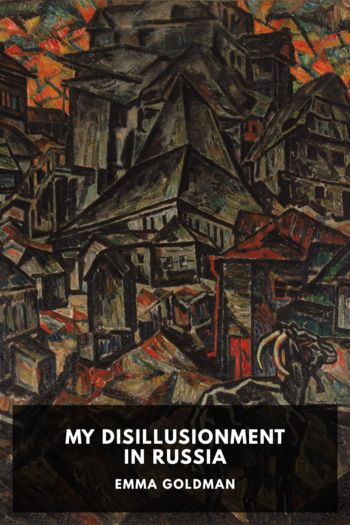The Conquest of Bread Peter Kropotkin (best summer reads of all time .txt) 📖

- Author: Peter Kropotkin
Book online «The Conquest of Bread Peter Kropotkin (best summer reads of all time .txt) 📖». Author Peter Kropotkin
Give the people a free hand, and in ten days the food service will be conducted with admirable regularity. Only those who have never seen the people hard at work, only those who have passed their lives buried among the documents, can doubt it. Speak of the organizing genius of the “Great Misunderstood,” the people, to those who have seen it in Paris in the days of the barricades, or in London during the great dockers’ strike, when 500,000 starving folk had to be fed, and they will tell you how superior it is to the official ineptness of Bumbledom.
And even supposing we had to endure a certain amount of discomfort and confusion for a fortnight or a month, surely that would not matter very much. For the mass of the people it would still be an improvement on their former condition; and, besides, in times of Revolution one can dine contentedly enough on a bit of bread and cheese while eagerly discussing events.
In any case, a system which springs up spontaneously, under stress of immediate need, will be infinitely preferable to anything invented between four walls by hidebound theorists sitting on any number of committees.
IVThe people of the great towns will be driven by force of circumstances to take possession of all the provisions, beginning with the barest necessaries, and gradually extending Communism to other things, in order to satisfy the needs of all the citizens. The sooner it is done the better; the sooner it is done the less misery there will be and the less strife.
But upon what basis must society be organized in order that all may have their due share of food produce? This is the question that meets us at the outset.
We answer that there are no two ways of it. There is only one way in which Communism can be established equitably, only one way which satisfies our instincts of justice and is at the same time practical; namely, the system already adopted by the agrarian communes of Europe.
Take for example a peasant commune, no matter where, even in France, where the Jacobins have done their best to destroy all communal usage. If the commune possesses woods and copses, then, so long as there is plenty of wood for all, everyone can take as much as he wants, without other let or hindrance than the public opinion of his neighbours. As to the timber-trees, which are always scarce, they have to be carefully apportioned.
The same with the communal pasture land; while there is enough and to spare, no limit is put to what the cattle of each homestead may consume, nor to the number of beasts grazing upon the pastures. Grazing grounds are not divided, nor is fodder doled out, unless there is scarcity. All the Swiss communes, and scores of thousands in France and Germany, wherever there is communal pasture land, practise this system.
And in the countries of Eastern Europe, where there are great forests and no scarcity of land, you will find the peasants felling the trees as they need them, and cultivating as much of the soil as they require, without any thought of limiting each man’s share of timber or of land. But the timber will be allowanced, and the land parcelled out, to each household according to its needs, as soon as either becomes scarce, as is already the case in Russia.
In a word, the system is this: no stint or limit to what the community possesses in abundance, but equal sharing and dividing of those commodities which are scarce or apt to run short. Of the 350,000,000 who inhabit Europe, 200,000,000 still follow this system of natural Communism.
It is a fact worth remarking that the same system prevails in the great towns in the distribution of one commodity at least, which is found in abundance, the water supplied to each house.
As long as there is no fear of the supply running short, no water company thinks of checking the consumption of water in each house. Take what you please! But during the great droughts, if there is any fear of the supply failing, the water companies know that all they have to do is to make known the fact, by means of a short advertisement in the papers, and the citizens will reduce their consumption of water and not let it run to waste.
But if water were actually scarce, what would be done? Recourse would be had to a system of rations. Such a measure is so natural, so inherent in common sense, that Paris twice asked to be put on rations during the two sieges which it underwent in 1871.
Is it necessary to go into details, to prepare tables, showing how the distribution of rations may work, to prove that it is just and equitable, infinitely more just and equitable than the existing state of things? All these tables and details will not serve to convince those of the middle classes, nor, alas, those of the workers tainted with middle-class prejudices, who regard the people as a mob of savages ready to fall upon and devour each other, as soon as the Government ceases to direct affairs. But those only who have never seen the people resolve and act on their own initiative could doubt for a moment that if the masses were masters of the situation, they would distribute rations to each and all in strictest accordance with justice and equity.
If you were to give utterance, in any gathering of people, to the opinion that delicacies—game and suchlike—should be reserved for the fastidious palates of aristocratic idlers, and black bread given to the





Comments (0)